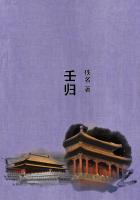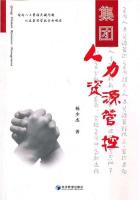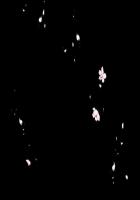Self-subsisting natural beauty reveals to us a technic of nature which shows it in the light of a system ordered in accordance with laws the principle of which is not to be found within the range of our entire faculty of understanding.This principle is that of a finality relative to the employment of judgement in respect of phenomena which have thus to be assigned, not merely to nature regarded as aimless mechanism, but also to nature regarded after the analogy of art.Hence it gives a veritable extension, not, of course, to our knowledge of objects of nature, but to our conception of nature itself-nature as mere mechanism being enlarged to the conception of nature as art-an extension inviting profound inquiries as to the possibility of such a form.But in what we are wont to call sublime in nature there is such an absence of anything leading to particular objective principles and corresponding forms of nature that it is rather in its chaos, or in its wildest and most irregular disorder and desolation, provided it gives signs of magnitude and power, that nature chiefly excites the ideas of the sublime.Hence we see that the concept of the sublime in nature is far less important and rich in consequences than that of its beauty.It gives on the whole no indication of anything final in nature itself, but only in the possible employment of our intuitions of it in inducing a feeling in our own selves of a finality quite independent of nature.
For the beautiful in nature we must seek a ground external to ourselves, but for the sublime one merely in ourselves and the attitude of mind that introduces sublimity into the representation of nature.This is a very needful preliminary remark.It entirely separates the ideas of the sublime from that of a finality of nature, and makes the theory of the sublime a mere appendage to the aesthetic estimate of the finality of nature, because it does not give a representation of any particular form in nature, but involves no more than the development of a final employment by the imagination of its own representation.
SS 24.Subdivision of an investigation of the feeling of the sublime.
In the division of the moments of an aesthetic estimate of objects in respect of the feeling of the sublime, the course of the Analytic will be able to follow the same principle as in the analysis of judgements of taste.For, the judgement being one of the aesthetic reflective judgement, the delight in the sublime, just like that in the beautiful, must in its quantity be shown to be universally valid, in its quality independent of interest, in its relation subjective finality, and the latter, in its modality, necessary.Hence the method here will not depart from the lines followed in the preceding section: unless something is made of the point that there, where the aesthetic judgement bore on the form of the object, we began with the investigation of its quality, whereas here, considering the formlessness that may belong to what we call sublime, we begin with that of its quantity, as first moment of the aesthetic judgement on the sublime-a divergence of method the reason for which is evident from SS 23.
But the analysis of the sublime obliges a division not required by that of the beautiful, namely one into the mathematically and the dynamically sublime.
For the feeling of sublime involves as its characteristic feature a mental movement combined with the estimate of the object, whereas taste in respect of the beautiful presupposes that the mind is in restful contemplation, and preserves it in this state.But this movement has to be estimated as subjectively final (since the sublime pleases).Hence it is referred through the imagination either to the faculty of cognition or to that of desire; but to whichever faculty the reference is made, the finality of the given representation is estimated only in respect of these faculties (apart from end or interest).Accordingly the first is attributed to the object as a mathematical, the second as a dynamical, affection of the imagination.Hence we get the above double mode of representing an object as sublime.
A.THE MATHEMATICALLY SUBLIME.
SS 25.Definition of the term "sublime".
Sublime is the name given to what is absolutely great.But to be great and to be a magnitude are entirely different concepts (magnitudo and quantitas).In the same way, to assert without qualification (simpliciter) that something is great is quite a different thing from saying that it is absolutely great (absolute, non comparative magnum).The latter is what is beyond all comparison great.What, then, is the meaning of the assertion that anything is great, or small, or of medium size? What is indicated is not a pure concept of understanding, still less an intuition of sense; and just as little is it a concept of reason, for it does not import any principle of cognition.It must, therefore, be a concept of judgement, or have its source in one, and must introduce as basis of the judgement a subjective finality of the representation with reference to the power of judgement.Given a multiplicity of the homogeneous together constituting one thing, and we may at once cognize from the thing itself that it is a magnitude (quantum).No comparison with other things is required.But to determine how great it is always requires something else, which itself has magnitude, for its measure.Now, since in the estimate of magnitude we have to take into account not merely the multiplicity (number of units) but also the magnitude of the unit (the measure), and since the magnitude of this unit in turn always requires something else as its measure and as the standard of its comparison, and so on, we see that the computation of the magnitude of phenomena is, in all cases, utterly incapable of affording us any absolute concept of a magnitude, and can, instead, only afford one that is always based on comparison.















